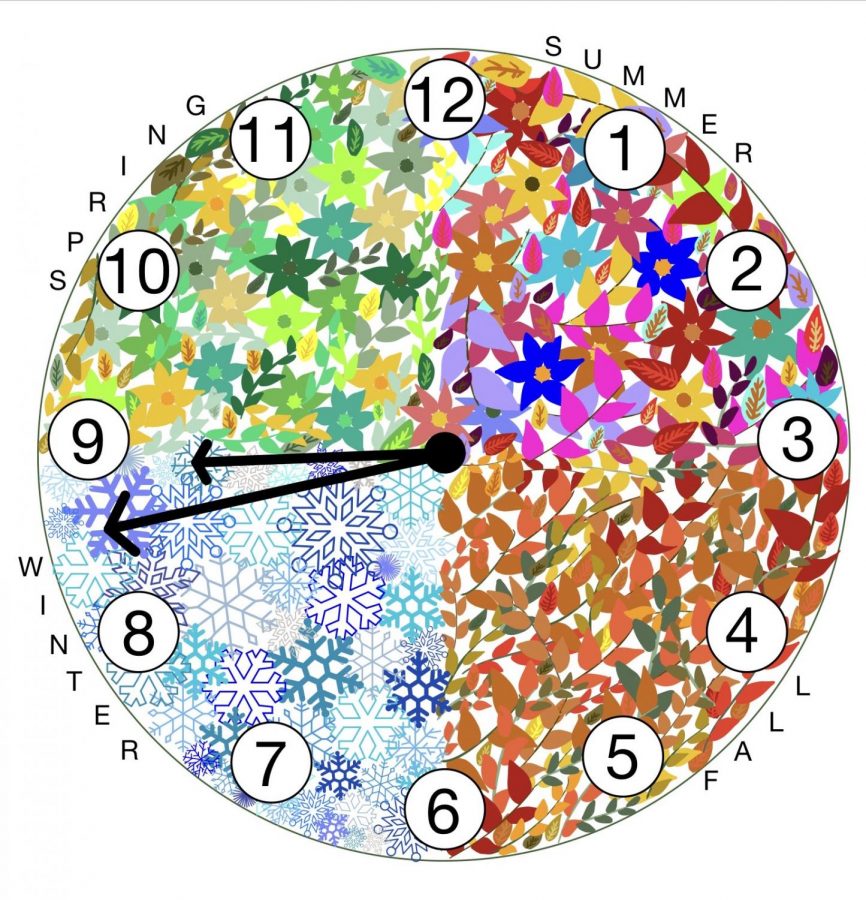‘Springing forward,’ ‘falling back’: It’s time to retire daylight saving time
“Springing forward” and “falling back” in time causes a massive headache for millions of Americans across the nation. From insomnia, fatigue and irritation to seasonal depression, the consequences of us turning our clocks forwards or backwards hurts almost everyone.
According to CBS News, Americans lose an average of 40 minutes of sleep due to daylight saving, a result of the disrupted melatonin release. Additionally, the ‘spring forward’ causes an eight percent increase in strokes and a 10% increase in cardiovascular disease, as stated by CNN.
National Geographic explains that the idea of daylight saving had originally been implemented by several western European countries in the early 20th century. Almost every nation fighting in World War I followed this example, but many nations refused to accept the concept. However, it was only recently that scientists and doctors were made aware of the sometimes deadly effects of daylight saving, including a significant increase in car crashes and heart attacks. CBS News points out that it can also lead to changes in diet, cravings, mood, and extreme lethargy and fatigue.
American Home Shield argues that daylight saving gives Americans more light in the evening hours, therefore dropping the crime rate and energy use. However, the end of daylight saving in the fall brings detrimental effects to many households. Sickness, insomnia, and drowsiness on the first Monday after daylight saving can be seen everywhere across the nation.
According to the World Population Review, states such as Hawaii and Arizona, which do not practice daylight saving, do not suffer from these consequences. While the rest of the nation gets up an hour earlier, sleep-deprived and most likely cranky, residents of Hawaii and Arizona get their full seven to eight hours of sleep and work more productively and efficiently.
An online Stanford University student debate forum states that there are few Americans who enjoy driving to work in the dark, while sleepy and irritated. Sure, as a student points out, it’s nice having extended sunlight on summer evenings. Unfortunately, that is one of the only known pros of “springing forward.”
The truth is, “springing forward” seems like a good idea during the summer, but the consequences it brings Americans during the fall and winter outweigh the pros.
Dave Mosher, a writer for Business Insider, calls the practice “America’s dumbest ritual,” for its effects on our circadian rhythms and sleep cycles, and its known effect on mood changes and irritation. It seems to be a major inconvenience for the majority of Americans who experience it across the nation.
Coincidentally, many Congressmen and women are trying to pass legislation to keep daylight saving time year-round and to end the time changes. This way, Americans get more evening sunlight hours– and skip the inconvenient time changes. And good news, people of Illinois: the Illinois Senate passed legislation to end daylight saving time in 2019. The bill needs approval from the Illinois House, the governor, and the federal government. Illinois is not alone. Thirty-five other states have introduced similar legislation.
Artwork by Peggy Nellessen ’23.








